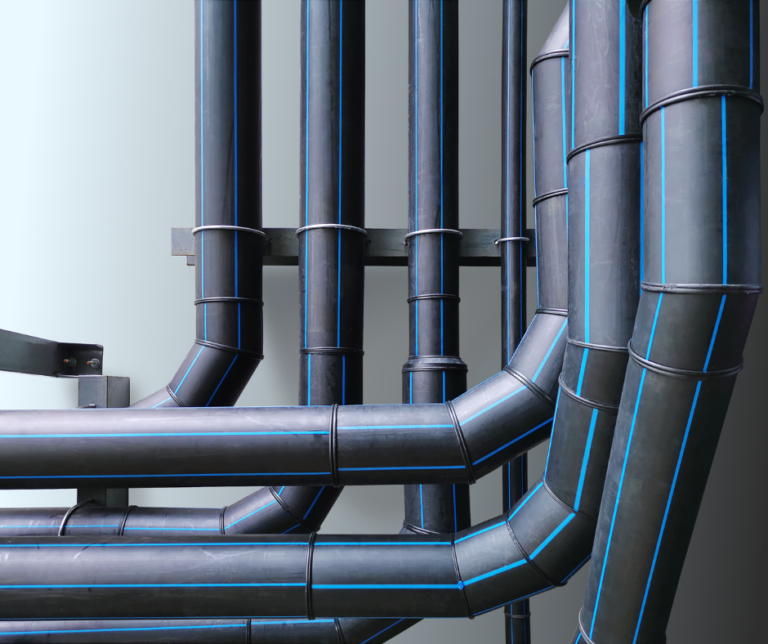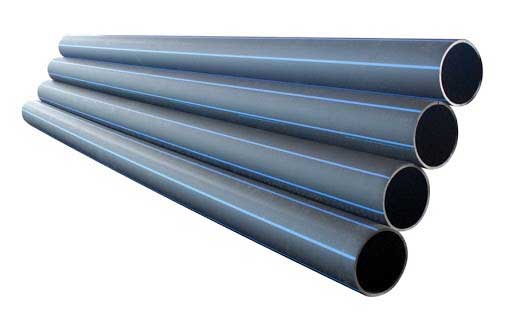Pipe Manufacturing Midland TX: From Raw Material to Finished Pipe
Comprehending the Secret Conveniences of HDPE Pipeline for Water and Wastewater Monitoring
Making use of HDPE pipeline in water and wastewater administration presents countless advantages that warrant factor to consider. Its extraordinary toughness and lengthy life-span make it a preferred choice for several jobs. In addition, the material's resistance to corrosion and chemical damages improves its integrity in numerous atmospheres. Nonetheless, the advantages expand past simply long life and resistance. Discovering its cost-effectiveness and ecological effect discloses a lot more engaging reasons for its widespread fostering in modern-day infrastructure
Outstanding Sturdiness and Durability

HDPE pipeline stands out for its phenomenal sturdiness and long life, making it a recommended option in water monitoring systems. Created from high-density polyethylene, these pipelines can withstand significant stress and anxiety, guaranteeing trustworthy efficiency gradually. Their durable nature permits them to endure severe ecological problems, consisting of temperature changes and dirt motions, which can create other products to fail.
The life expectancy of HDPE pipes usually surpasses 50 years, giving an economical service for municipalities and markets alike. In addition, the material's lightweight homes streamline installment, lowering labor expenses and durations. This longevity decreases the demand for regular repairs or substitutes, further enhancing its economic allure.
In water administration applications, the integrity of HDPE pipelines means fewer interruptions and boosted service continuity, making them essential to lasting infrastructure development. The combination of resilience and longevity solidifies HDPE's role as a cornerstone in efficient water administration services.

Resistance to Rust and Chemical Damages
While numerous materials surrender to corrosion and chemical damages gradually, HDPE pipelines show exceptional resistance, making them optimal for numerous water management applications. This durability comes from the molecular framework of high-density polyethylene, which is inherently non-reactive and does not rust like metals or deteriorate from direct exposure to harsh chemicals. Because of this, HDPE is extremely reliable in settings with hostile compounds, such as wastewater systems that may contain acids, bases, and natural solvents.
In addition, HDPE pipes can hold up against ecological variables such as dirt level of acidity and saline problems, further boosting their viability for diverse applications (Pipe Manufacturing Midland TX). Their capacity to keep architectural integrity in time reduces the danger of leaks and failures, which is important in guaranteeing the safety and security and reliability of water circulation and wastewater monitoring systems. The resistance to deterioration and chemical damage considerably adds to the total effectiveness and durability of HDPE piping remedies.
Cost-Effectiveness and Financial Benefits
When thinking about the monetary implications of water administration systems, the cost-effectiveness of HDPE pipes ends up being evident. These pipes provide reduced setup and upkeep costs contrasted to typical materials like steel or concrete. Their light-weight nature streamlines transportation and setup, leading to decreased labor expenses. In addition, HDPE pipelines exhibit a lengthy life expectancy, commonly going beyond 50 years, which translates to fewer substitutes and lasting financial savings.
Moreover, the resistance of HDPE to corrosion and chemical damage reduces the need for expensive repair work and replacements. The pipes also sustain effective water flow, minimizing power expenses connected with pumping systems. By reducing leaks and water loss, HDPE pipes add to substantial economic benefits for communities and industries alike. On the whole, the initial financial investment in HDPE piping can yield considerable economic returns over the life expectancy of the water management system, making it a prudent selection for lasting infrastructure growth.
Ecological Sustainability and Reduced Impact

Convenience and Flexibility in Installation
Since of their special buildings, HDPE pipes supply amazing flexibility and versatility in installment, making them ideal for a vast array of applications. Their lightweight nature permits much easier handling and transportation, lowering labor costs and installment time. HDPE pipelines can be curved and formed to fit numerous surfaces and task needs, which is especially helpful in challenging settings.
Furthermore, their resistance to rust and chemical damage allows for setup in varied setups without the requirement for specialized protective layers. The capacity to fuse joints develops a continuous, leak-free system, boosting the total stability and reliability of the setup. HDPE's adaptability likewise fits ground activity, lowering the risk of damages in areas prone to changing soil. On the whole, these characteristics make HDPE pipelines not only flexible but likewise a favored choice for water and wastewater management systems.
Often Asked Inquiries
How Does HDPE Pipe Contrast to PVC in Water Administration Applications?
HDPE pipe offers remarkable flexibility, resistance to deterioration, and durability contrasted to PVC. Its lighter weight helps with easier setup, while its long life expectancy reduces substitute prices, making HDPE a preferred choice in water administration applications.
What Is the Lifespan of HDPE Pipes Under Typical Problems?
Under typical conditions, HDPE pipes can have a life expectancy varying from 50 to 100 years. Their sturdiness and resistance to deterioration add to their long-lasting performance in different applications, making them a dependable option for framework.
Are HDPE Water Lines Recyclable After Their Life Span?
Yes, HDPE pipes are recyclable after their life span. Midland TX HDPE Pipe Fittings in Stock. They can be refined and repurposed right into new items, substantially decreasing environmental impact and promoting sustainability within the sector, making them an environmentally friendly option for piping services
What Is the Installment Process for HDPE Pipes?
The installation procedure for HDPE pipelines involves website prep work, trenching, pipe combination or mechanical joining, backfilling, and pressure testing. Proper techniques guarantee a resilient and reliable system for carrying water and wastewater effectively.
Can HDPE Pipes Be Made Use Of for Both Safe And Clean and Non-Potable Water Solutions?
Yes, HDPE pipes can be used for both drinkable and non-potable water supply. Their convenience, sturdiness, and resistance to corrosion make them suitable for various applications, making sure safe and effective transportation of water in different contexts.